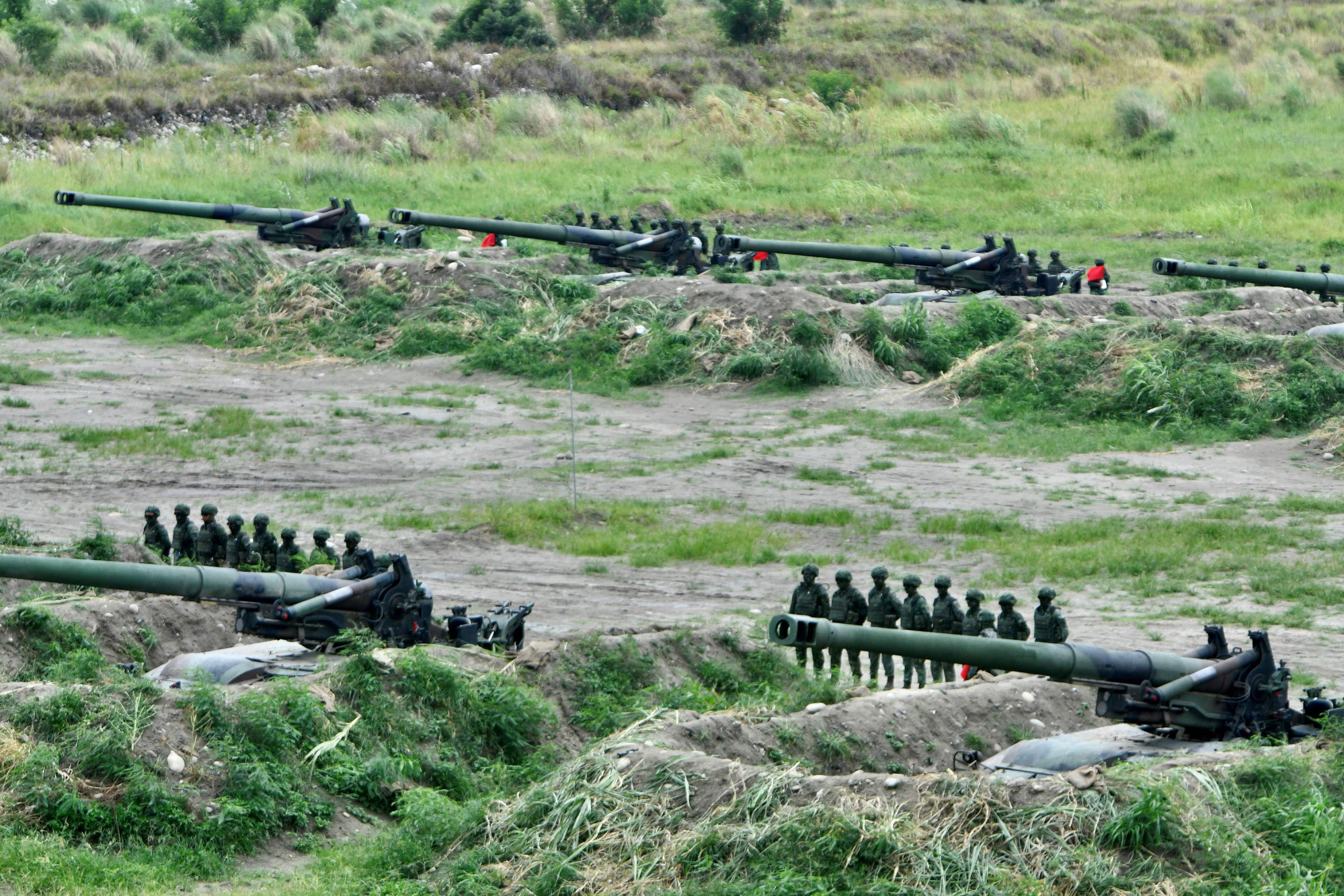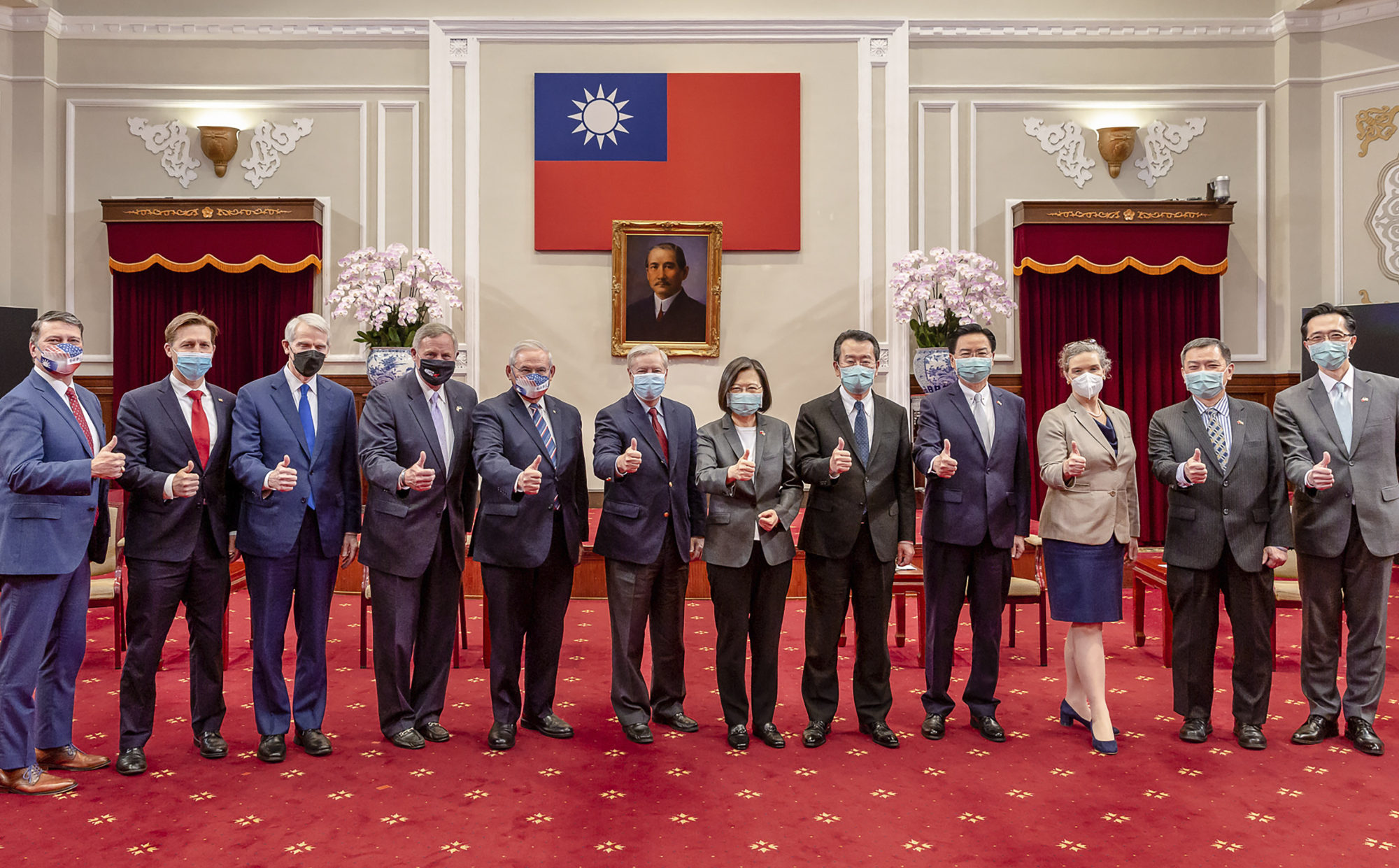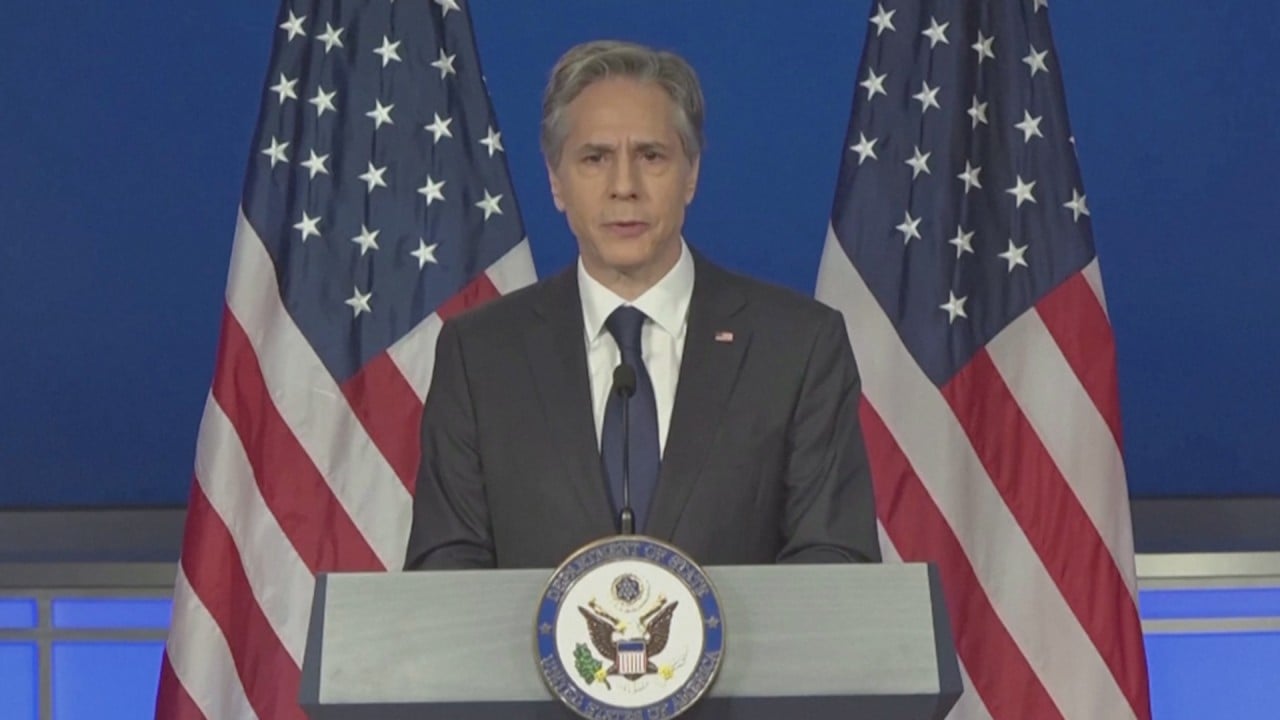
New US Senate bill proposes expansion of Taiwan military aid
- Legislation sends ‘a clear message to Beijing not to make the same mistakes with Taiwan that Vladimir Putin has made in Ukraine’, says one of its authors
- Taiwan Policy Act of 2022 would provide almost US$4.5 billion in security assistance over four years and designate the island as a ‘major non-Nato ally’
In the latest effort by American lawmakers to protect Taiwan in the face of growing Chinese threats, a bipartisan pair of senators on Friday introduced expansive legislation that would increase defence assistance to the self-governing island.
The bill comes as many in Congress believe the US must do more because of China’s aggressive moves to undermine the status quo across the Taiwan Strait and potentially start a war. Those fears have only grown since Russia launched its own assault on Ukraine in February.
“As Beijing continues to seek to coerce and isolate Taiwan, there should be no doubt or ambiguity about the depth and strength of our determination to stand with the people of Taiwan and their democracy,” said Senator Bob Menendez, the Democratic chairman of the Senate Foreign Relations Committee and one of the bill’s two authors.
The legislation, he said, would send “a clear message to Beijing not to make the same mistakes with Taiwan that Vladimir Putin has made in Ukraine”.

If it eventually becomes law, the bill, called the Taiwan Policy Act of 2022, would provide almost US$4.5 billion in security assistance over the next four years; would designate Taiwan as a “major non-Nato ally” alongside Israel, Japan and South Korea, eligible for increased security cooperation with the US; and would create new sanctions for Chinese officials accused of “interfering with Taiwan’s territorial integrity”.
Washington’s commitment to defending Taiwan has grown more urgent since the Russian invasion of Ukraine.
Many in the US capital view Chinese leader Xi Jinping as a dictator in the mould of Putin with expansionist territorial ambitions, and last week China’s Defence Minister Wei Fenghe told US Defence Secretary Lloyd Austin that Beijing would “not hesitate to start a war” over Taiwan.
For years, US policy on the question of Taiwan’s defence has been one of “strategic ambiguity”, meaning it is unknown if the American military would come to Taiwan’s aid if it was attacked by China.
US defence chief denies seeking to split Asia ‘into hostile blocks’
Since taking office last year, President Joe Biden has said three times that the US would defend the island if needed. Officials in his administration tried to quickly walk back those comments each time he made them, insisting that there has been no change in any policy, but some observers say that Biden is signalling his true intentions.
The US is obligated under the 1979 Taiwan Relations Act to provide Taipei with arms used in a “defensive character”.
In a change, the new bill would widen that to include “arms conducive to deterring acts of aggression by the People’s Liberation Army”. It would also force the Pentagon to create a new “comprehensive training programme” with Taiwan.
The bill’s authors on Friday called it “the most comprehensive restructuring of US policy towards Taiwan” since the 1979 law.

“Our bill is the largest expansion of the military and economic relationship between our two countries in decades,” said Senator Lindsey Graham, the bill’s other author and the top Republican on the powerful appropriations panel that oversees State Department funding.
“We live in dangerous times,” he added. “China is sizing up America and our commitment to Taiwan. The danger will only grow worse if we show weakness in the face of Chinese threats and aggression toward Taiwan.”
Beijing has flown hundreds of military jets near Taiwan in recent months. It has also used its immense influence at the United Nations and other international bodies like the World Health Organization to block Taiwan’s participation.
Even sporting events like the upcoming soccer World Cup are a source of friction.
Officials in host country Qatar found themselves in the middle of the dispute when they first did not include Taiwan on a page for fans travelling to the tournament, then angered Taipei by listing Taiwan as a province of China, and then infuriated Beijing when they changed the name again to just “Taiwan” alongside a Taiwanese flag.
Qatar World Cup organisers alter ID system that listed Taiwan as part of China
The bill introduced on Friday would not restore US diplomatic relations with Taiwan, which were cut off in 1979, but China says it opposes any official contact between the government in Taipei and other countries around the world.
Asked about the legislation, Liu Pengyu, spokesman for the Chinese embassy in Washington, urged Congress to “stop advancing the act” and warned of “resolute countermeasures” if Washington takes actions that harm China’s interests.
“On issues concerning China’s sovereignty and territorial integrity and other core interests, China has no room for compromise or concession,” he said.
Menendez and Graham introduced the bill two months after they travelled to Taiwan to meet with top officials, including President Tsai Ing-wen.
Their bill also comes just weeks after US Secretary of State Antony Blinken warned that Beijing’s words and actions were threatening peace in Taiwan. “While our policy has not changed, what has changed is Beijing’s growing coercion,” Blinken said in a policy address last month.
That sentiment is not just limited to Taiwan. Also on Friday, the State Department issued a statement siding with the Philippines – a treaty ally of the US – in its continuing territorial disputes with Beijing in the South China Sea.
“We share the Philippines’ concerns regarding the PRC’s provocative actions interfering with Philippine sovereign rights,” said Ned Price, a department spokesman.
“These actions are part of a broader trend of PRC provocations against South China Sea claimants and other states lawfully operating in the region.”


